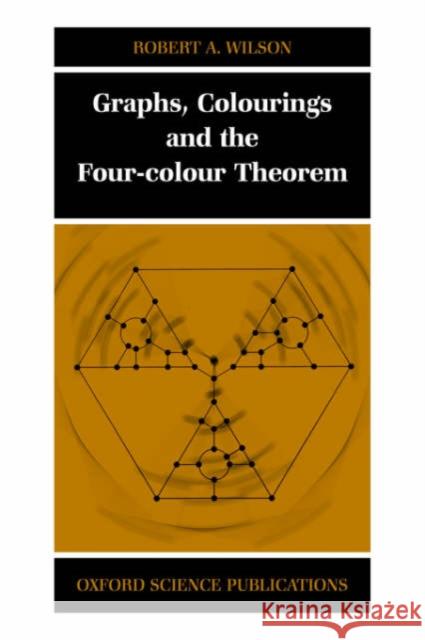Graphs, Colourings and the Four-Colour Theorem » książka
Graphs, Colourings and the Four-Colour Theorem
ISBN-13: 9780198510628 / Angielski / Miękka / 2002 / 154 str.
Graphs, Colourings and the Four-Colour Theorem
ISBN-13: 9780198510628 / Angielski / Miękka / 2002 / 154 str.
(netto: 319,11 VAT: 5%)
Najniższa cena z 30 dni: 306,96
ok. 16-18 dni roboczych.
Darmowa dostawa!
The four-colour theorem is one of the famous problems of mathematics, that frustrated generations of mathematicians from its birth in 1852 to its solution (using substantial assistance from electronic computers) in 1976. The theorem asks whether four colours are sufficient to colour all conceivable maps, in such a way that countries with a common border are coloured with different colours. The book discusses various attempts to solve this problem, and some of the mathematics which developed out of these attempts. Much of this mathematics has developed a life of its own, and forms a fascinating part of the subject now known as graph theory. The book is designed to be self-contained, and develops all the graph-theoretical tools needed as it goes along. It includes all the elementary graph theory that should be included in an introduction to the subject, before concentrating on specific topics relevant to the four-colour problem. Part I covers basic graph theory, Euler's polyhedral formula, and the first published false proof of the four-colour theorem. Part II ranges widely through related topics, including map-colouring on surfaces with holes, the famous theorems of Kuratowski, Vizing, and Brooks, the conjectures of Hadwiger and Hajos, and much more besides. In Part II we return to the four-colour theorem, and study in detail the methods which finally cracked the problem.











